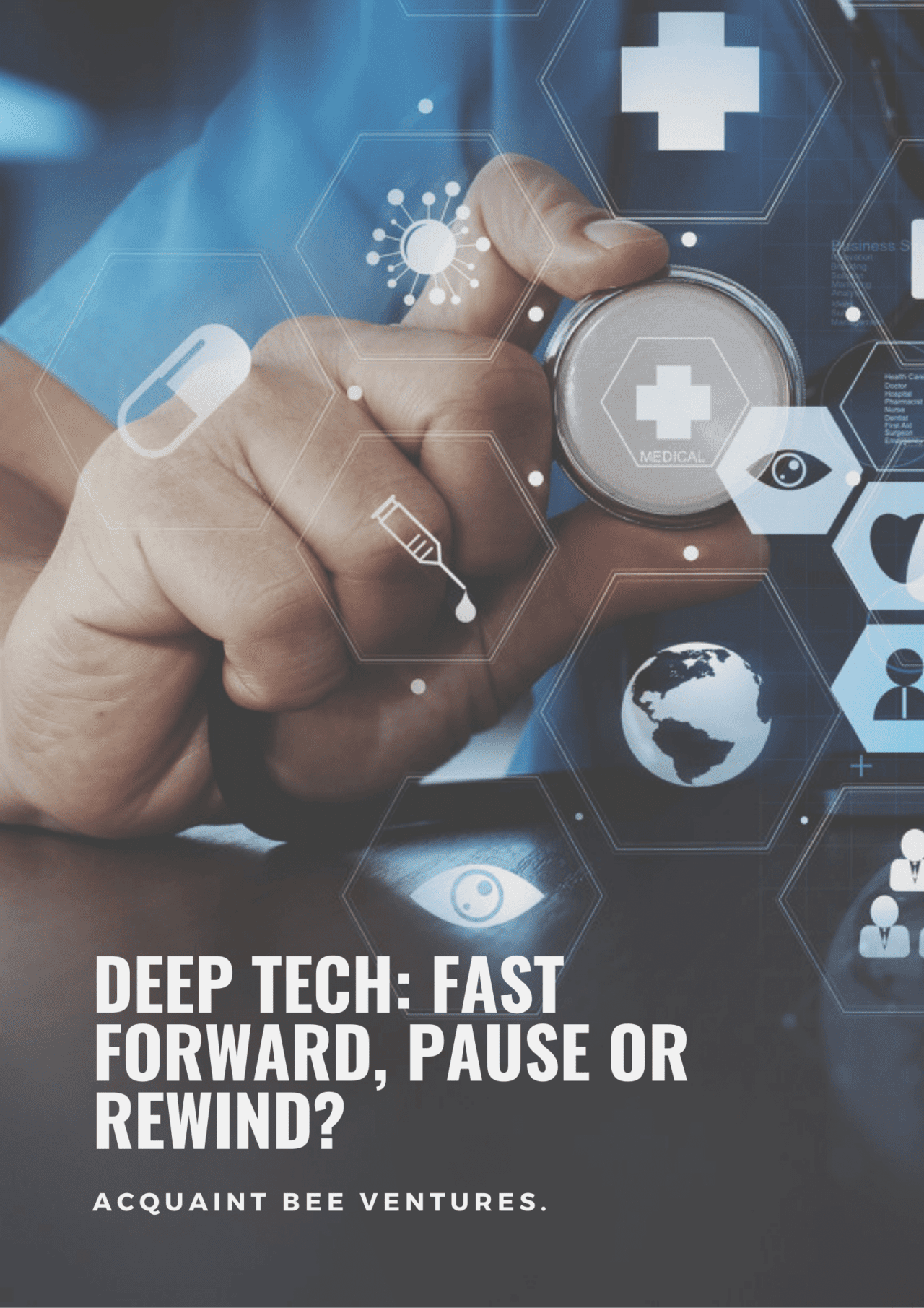Technology can be envisaged from the two sides of the coin either it is here to create opportunities or challenges. The advent of the changing business ecosystem amplified by technology, adoption of new age business models, changing structure of the equity markets, new IPO launch’s and significant investments by private equity firms in innovation, indicates that our world is in fast forward mode. Is it for the best or worse? Two schools of thought have erupted as professionals and academia around the world have their strong opinions on the role of deep technology and its impact on mankind and society as a whole. While proponents celebrate this revolution (Industrial revolution 4.0), some believe it is too early to come to conclusions, while some fear the implications of these rising technologies.
Before moving on, it is vital to pause and analyze/ evaluate an important understanding or belief. It is usually assumed that startups such as platform businesses, aggregator businesses like B&B apps, transportation apps, food delivery apps and so on, are revolutionary in nature, however they are not. No doubt they have disrupted industries and created new ones. However, the actual innovators and groundbreaking actors are deep tech firms that intend to innovate pathbreaking new technologies to solve social or environmental problems. In fact platform or aggregator businesses too depend on deep tech in the form of AI/ML to operate. Sometimes these businesses are deemed and dubbed as shallow businesses. Hence the actual backbone, pillar and pioneer is deep techcreating a transformational change in the world.
Advances in deep technology be it AI, ML, 3-D printing, quantum computing, blockchain, and IoT to name a few, have the inherent ability to transform the world 360 degree. Onecan imagine self-driving cars, flying cars in the sky or individuals travelling in the hyperloop reaching their destinations in a period of 3-4 hours from one part of the world to another. Need help with chores? Robots would be there for our rescue, employed as assistants completing the household chores including cooking and serving their master, and possessing the abilities to reflect and feel emotions of their master. Teleportation services that we have only reckoned with movies may perhaps come true or the concept of holograms come to life revolutionizing the concept of business meetings or social events. PS: Where one can be virtually present but not via a laptop, smartphone or tablet but a 3-D version of ourselves. Sounds incredible right?
Not to miss the glorious developments in science, biotech and biochemistry targeted towards increasing the life expectancy of individuals to an unbelievable number, via reinventing and regenerating individual’s cells and organs. Planning a vacation? Well if we fast forward into the future we would be heading for space excursions visiting different planets, pampering ourselves and being pampered in spaceships.Buying real estate? Consider purchasing land on any other planet than earth. All these activities sound mindboggling however there is a possibility that they may be implemented and executed in reality in the future decades.
Some academia or professionals may perceive technological developments from the lens of a cynic, albeit some are awed by its accomplishments and its potential to turn the tables. Skeptics argue laying emphasis on the massive and unimaginable unemployment rate skyrocketing as robots replace humans in manual jobs and service related jobs. No doubt it is foreseen that the service industry will be hit hard by technological developments. It is evidently possible that in order to reduce human interaction due to the spread of Covid19 robots may replace individuals at a quicker paceunless the virus is curbed. Cynics foresee and highlight the lack of empathy and emotions that would take place during interactions between robots and humans. While proponents of technology stress on the creation of completely new industries and new jobs that would keep the economic cycle spinning. As far as human emotions are concerned, robots like Sophia are being constructed to incorporate emotional intelligence to emanate the humbleness of human interaction, while keeping them alive.
In foresight it is plausible that not only blue-collar jobs are threated but also white-collar jobs are at risk of being replaced by robots, automation and AI/ML. As they have the innate capabilities of conducting similar activities at a much lower cost and in a seamless and efficient manner. Furthermorewhite collar jobs such as accountants, lawyers, surgeons, bankers, insurance writers and so forth are likely to become unemployed in the future. Hence it is plausible that the definition of job and work would be turned 360 degrees. AL/ML are ingrained with knowledge to perform human tasks from prediction to analysis and decision making be it in the field of business decision making to diagnosis and treatment decision making in health care or tracking consumer behaviour for personalized marketing. However it is argued that ultimately humans have the last resort to decide which suggestion to implement as AL/ML merely provide any array of options to choose from. After all its humans who are developing and training it and only humans can operate it to complete tasks. However in hindsight, the increasing power of deep technology and the accelerating rate of their learning capacity, it may be possible that they eventually outcompete humans.
Meanwhile parents are alarmed about their children’s future and ability to survive and thrive in the emerging tech ecosystem. Well it is evident that education systems worldwide are gradually taking steps to adapt to the changing ecosystem. Incorporating and focusing on subjects like fostering computational thinking, design thinking, critical thinking, collaboration, designing software and applications, digital problem solving, interface design, data analysis, machine learning, networking, robotics and cybersecurity.Concurrently students need to be enlightened about keeping in mind ethics and the impact on stakeholders of their innovations in the future. It is argued that in the future individuals will not be employable for a particular specialized job, but for multiple jobs by acquiring digital knowledge to thrive in the digital field. Persistent efforts will be required to reskill oneself to remain on the same page as the world.
On one hand skeptics are petrified and perturbed by the increasing digital divide and inequality that would be fostered by technology. On the contrary, proponents strongly believe that technology will present and innovative solutions to reduce this divide.
Reskilling youth via reskilling programs to stay in touch with new advancements and remain employable regardless of the changing dynamics. However, there is an extreme dearth of such programs or curriculums worldwide which need to be propagated and advocated. Stakeholders around the world such as the government, NGO’s and corporates can propel the process of initiating reskilling programs for the underprivileged children and youth. Hence creating a brighter for future for them and supporting them to stand up and attain self-sufficiency in the coming decades.
Several industries have adapted and accepted deep technology such as logistics, transportation, healthcare, pharmaceutical, banking manufacturing, law and order and so on. Smart cities and homes are designed to provide convenience to consumers however unintended consequences need to be taken into consideration as well eg: technical glitches that may have a negative impact such as an electricity cut or traffic jams in cities. In fact sometimes one may find themselves locked outside their own house if voice recognition cannot clearly identify your voice due to a sore throat. Self-driving car as a concept is still in the process of development and trial. Some academia and professionals deem, technological changes would be incremental and results wouldn’t be rapidly prominent, from a realistic point of view. Howeverconsidering from another perspective quantum computing is here to make radical change. Since the last two decades or so,the acceptance and diffusion of digitalization and technology has been spectacular however inequality exits.
Though digitization and automation sound intriguing and mind-blowing, humans will lose their relevance to some extent and miss preforming activities themselves. The possibility exists that technology can replace humans in certain jobs, though it is argued that it cannot mimic human creativity, hence humans possess a USP compared to technology. As mentioned above, after all its humans who design, train execute, implement deep technologies. However the question arises: for how long can humans possess this power? In addition, it is claimed that artisanal and craftmanship will regain its prestige as individuals will demand handmade objects in the future. Well time can only reveal how technology is going to impact human kind in the coming decades.
So it is up to all the stakeholders and us to decide in consensus; deep technology : fast forward, pause or rewind?


